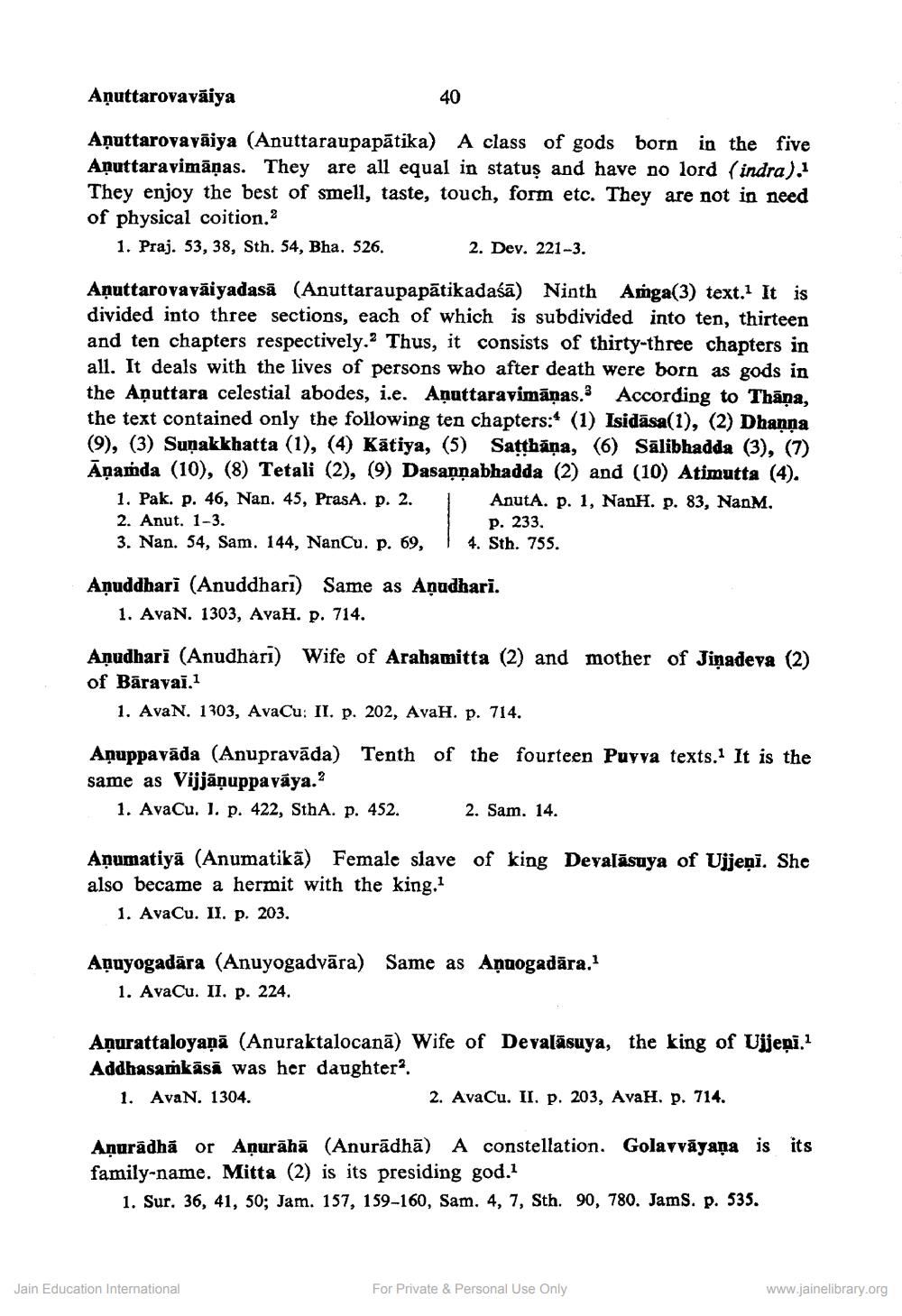________________
Aņuttarovavāiya
40
Anuttarovayāiya (Anuttaraupapātika) A class of gods born in the five Anuttaravimāņas. They are all equal in status and have no lord (indra).1 They enjoy the best of smell, taste, touch, form etc. They are not in need of physical coition. 1. Praj. 53, 38, Sth. 54, Bha. 526.
2. Dey. 221-3.
Aņuttarovaväiyadasā (Anuttaraupapātikadašā) Ninth Amga(3) text. It is divided into three sections, each of which is subdivided into ten, thirteen and ten chapters respectively. Thus, it consists of thirty-three chapters in all. It deals with the lives of persons who after death were born as gods in the Anuttara celestial abodes, i.e. Anuttaravimāņas. According to Thāna, the text contained only the following ten chapters:* (1) Isidāsa(1), (2) Dhanna (9), (3) Suņakkhatta (1), (4) Kātiya, (5) Satthäņa, (6) Sālibhadda (3), (7) Anamda (10), (8) Tetali (2), (9) Dasappabhadda (2) and (10) Atimutta (4).
1. Pak. p. 46, Nan. 45, PrasA. p. 2. 1 AnutA. p. 1, NanH. p. 83, NanM. 2. Anut. 1-3.
p. 233. 3. Nan. 54, Sam. 144, NanCu. p. 69, 4. Sth. 755.
Anuddhari (Anuddhari. Same as Anudhari.
1. AvaN. 1303, AvaH. p. 714. Anudhari (Anudhari) Wife of Arahamitta (2) and mother of Jiņadeva (2) of Bāravai.1
1. AvaN. 1303, AvaCu: II. p. 202, AvaH. p. 714.
Anuppavāda (Anupravāda) Tenth of the fourteen Puyva texts. It is the same as Vijjāņuppa vāya.?
1. AvaCu. I. p. 422, SthA. p. 452. 2. Sam. 14.
Anumatiyā (Anumatikā) Female slave of king Deyalāsuya of Ujjeņi. She also became a hermit with the king.1
1. AvaCu. II. p. 203.
Apuyogadāra (Anuyogadvāra) Same as Anaogadāra.
1. AvaCu. II. p. 224.
Anurattaloyaņā (Anuraktalocanā) Wife of Devalāsuya, the king of Ujjeņi. Addhasamkāsä was her daughtera. 1. AvaN. 1304.
2. AvaCu. II. p. 203, AvaH. p. 714.
Anuradhā or Anurähä (Anurādhā) A constellation. Gola vvāyana is its family-name. Mitta (2) is its presiding god.
1. Sur, 36, 41, 50; Jam. 157, 159-160, Sam. 4, 7, Sth. 90, 780. Jams. p. 535.
Jain Education International
For Private & Personal Use Only
www.jainelibrary.org




